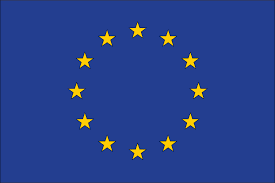Chemycal has been acquired by 3E
Learn MoreChemycal has been acquired by 3E
Learn MoreDiscover how Chemycal PRO helps you boosting your regulatory monitoring:

The Council of the European Union has taken a significant step towards establishing a comprehensive framework for ecodesign requirements in a wide range of products by adopting its position, known as the "general approach," on a proposed regulation. This regulation aims to replace the existing 2009 directive and broaden its scope to encompass environmental sustainability standards for nearly all goods available on the EU market.
The newly adopted regulation introduces several key provisions to promote sustainable practices. One notable aspect is the introduction of a Digital Product Passport, which will provide valuable information about a product's environmental sustainability. This passport will empower consumers, businesses, and public authorities to make informed choices and conduct effective checks and controls.
Under the new framework, ecodesign requirements will cover a broad spectrum of product categories. These requirements aim to enhance energy and resource efficiency while also prioritizing durability, reliability, reusability, upgradability, reparability, recyclability, and ease of maintenance. The European Commission will have the authority to propose new requirements through delegated acts as needed to address emerging products and technologies.
Additionally, the regulation addresses the issue of unsold consumer goods. It sets rules to ensure transparency about and prohibition of the destruction of such goods, except for micro and small enterprises, which will enjoy an exemption. Notably, the destruction of unsold textiles will be directly banned, with a transition period for medium-sized companies.
Ebba Busch, the Swedish Minister for Energy, Business, and Industry, emphasized the significance of focusing on product design to achieve truly sustainable European products. She believes that the Ecodesign regulation will play a vital role in facilitating the green transition by ensuring that products entering the EU market are aligned with sustainable principles.
The Council's position further emphasizes the role of member state experts and industry stakeholders in the development of future ecodesign requirements. It outlines clear criteria and considerations that should be taken into account during the development process.
Motor vehicles are excluded from the directive's scope as they are subject to specific environmental impact regulations already in place. The Council's general approach also provides a minimum transition period of 18 months after the implementation of ecodesign requirements, allowing economic operators ample time to adapt. Member states will have two years to adjust and adopt necessary national measures, including market surveillance and fines.
Next steps
The general approach agreed today formalises the Council’s negotiating position. It provides the Council presidency with a mandate for negotiations with the European Parliament, which will start as soon as the Parliament adopts its position.
Documents:
2013 © MyChemicalMonitoring. ALL Rights Reserved. About Us | Terms and Conditions